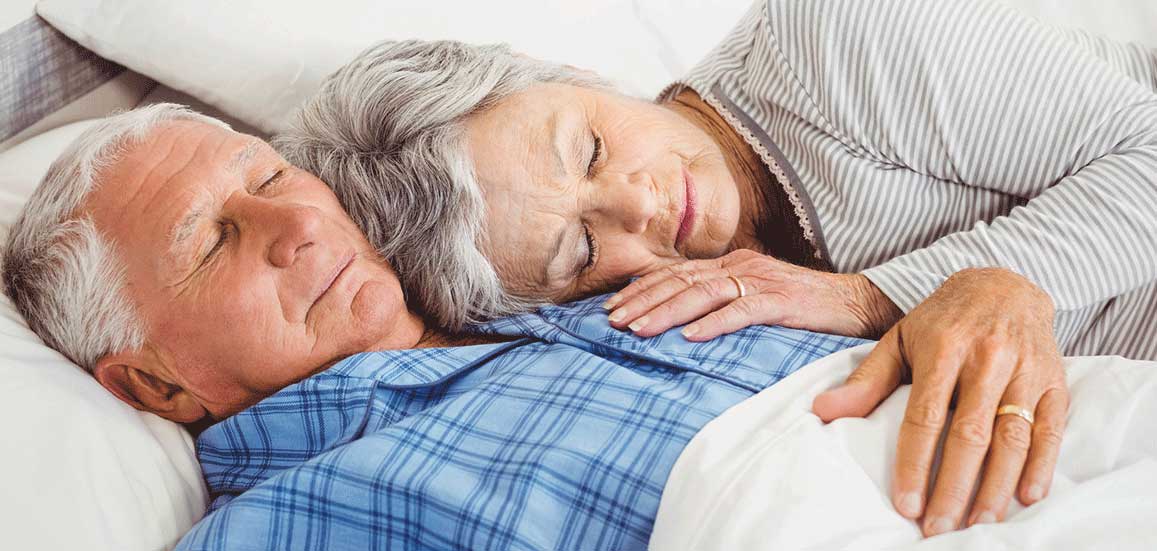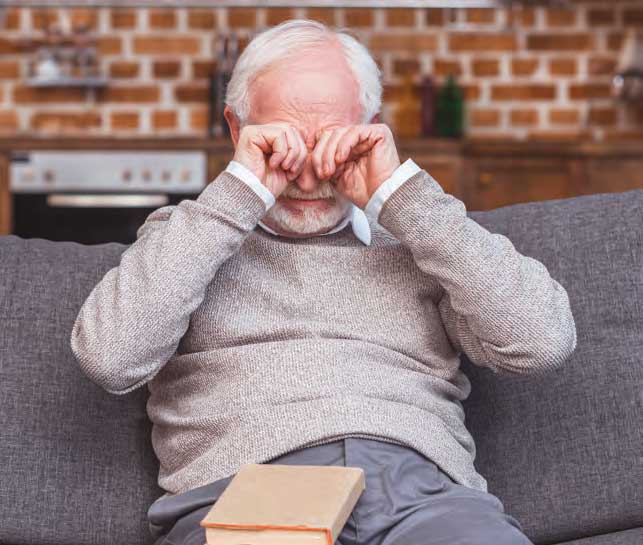
Is your sleep different than it used to be when you were younger? It happens to a lot of people. Nearly half of men and women over the age of 65 say they have at least one sleep problem. With age, many people get insomnia or have other sleep disorders. It’s true that as we get older, our sleep patterns change. In general, older people sleep less, wake up and go back to sleep more often, and spend less time in deep sleep or dreaming than younger people. But at any age, you still need quality rest to be healthy.
 Some common reasons that cause sleep problems with age include poor sleep habits. When one does not keep a schedule for going to bed and waking up, it can affect your body’s internal clock and make it even harder to get good sleep. At any age, drinking alcohol before bedtime, napping too much, or staying in bed when you are not sleeping can make it difficult to get good sleep. Worry, stress, or grief, which all comes with aging and its life changes, can all alter your sleep patterns. Sleep disorders can be a reason for one’s sleeping problems. Insomnia and disrupted sleep in elderly people are a common side effect caused by many chronic medical conditions such as arthritis, congestive heart failure, and depression. Respiratory disorders, such as sleep apnea, which cause multiple arousals during the night, also become more common as people age. Unfortunately, sleep problems in older adults often go undiagnosed and untreated simply because many people believe sleep problems are a normal part of aging or that nothing can be done to help them sleep better. Thankfully, treating any underlying medical disorders can dramatically improve sleep.
Some common reasons that cause sleep problems with age include poor sleep habits. When one does not keep a schedule for going to bed and waking up, it can affect your body’s internal clock and make it even harder to get good sleep. At any age, drinking alcohol before bedtime, napping too much, or staying in bed when you are not sleeping can make it difficult to get good sleep. Worry, stress, or grief, which all comes with aging and its life changes, can all alter your sleep patterns. Sleep disorders can be a reason for one’s sleeping problems. Insomnia and disrupted sleep in elderly people are a common side effect caused by many chronic medical conditions such as arthritis, congestive heart failure, and depression. Respiratory disorders, such as sleep apnea, which cause multiple arousals during the night, also become more common as people age. Unfortunately, sleep problems in older adults often go undiagnosed and untreated simply because many people believe sleep problems are a normal part of aging or that nothing can be done to help them sleep better. Thankfully, treating any underlying medical disorders can dramatically improve sleep.
You want to make sure you are getting enough sleep. Everyone is different when it comes to the amount of sleep you need to feel well rested, but if you have noticed that your lack of sleep affects you during the day, tell your doctor. There are steps you can take to get better rest. Many are simple tweaks to your daily routine, like setting a regular bedtime, being more active, and taking steps to ease your mind before you hit the hay.





 © 2026 Kirby Pines LifeCare Community. All Rights Reserved |
© 2026 Kirby Pines LifeCare Community. All Rights Reserved | 